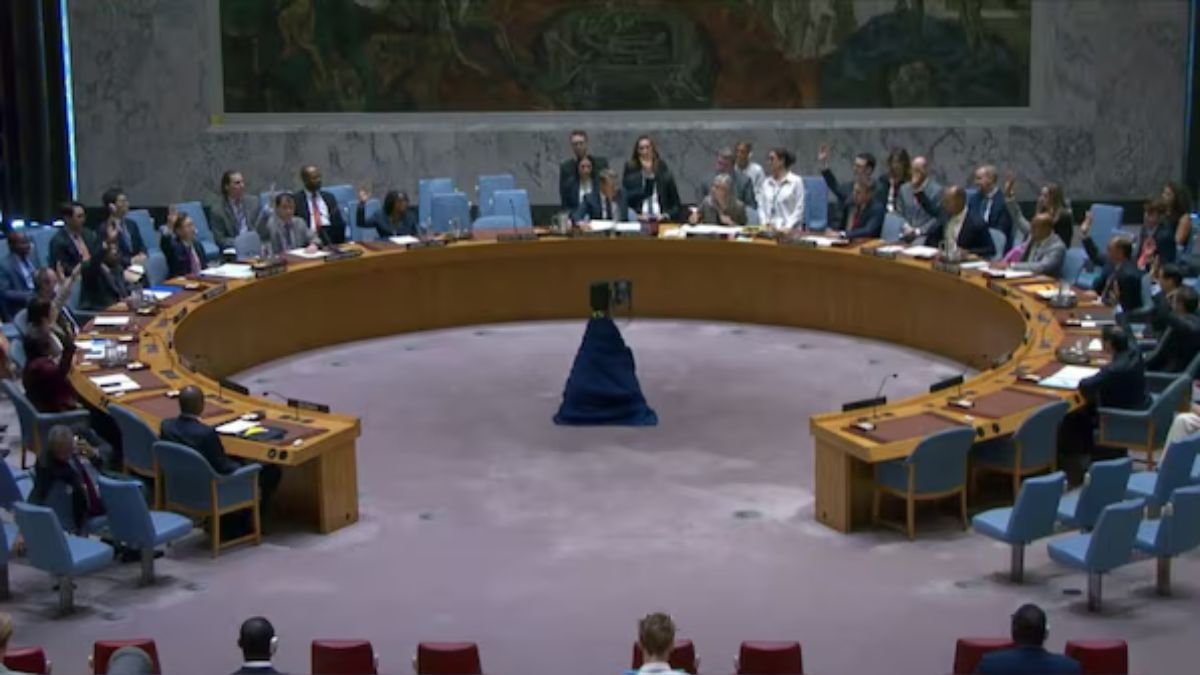

India has strongly condemned Pakistan at the United Nations Security Council, asserting that Islamabad is responsible for decades of terrorism directed towards India. This statement comes amid heightened tensions between the two nations, particularly following the recent terrorist attack in Pahalgam, a town in Indian-administered Kashmir, which resulted in the deaths of 26 people, including 25 Indian nationals and one Nepali national.
India's Permanent Representative to the UN, Ambassador Parvathaneni Harish, delivered a statement at the UN Security Council Open Debate on May 23, 2025, addressing the theme of "Addressing emerging threats, ensuring safety of civilians, humanitarian and UN Personnel, journalists and media professionals and enhancing accountability mechanisms" under the agenda item "Protection of Civilians in Armed Conflict". During his address, Ambassador Harish responded to what he described as baseless allegations made by the representative of Pakistan. He stated that India has experienced decades of Pakistani-sponsored terrorist attacks across its borders, ranging from the horrific 26/11 attack on Mumbai to the "barbaric mass murder of innocent tourists in Pahalgam in April 2025."
Ambassador Harish emphasized that the victims of Pakistani terrorism have predominantly been civilians, as the objective of these attacks has been to undermine India's prosperity, progress, and morale. He argued that for a nation with such a record to participate in a discussion on the protection of civilians is an affront to the international community.
The recent Pahalgam attack has further exacerbated the already strained relations between India and Pakistan. Following the attack, India implemented several diplomatic and security measures, including suspending the 1960 Indus Waters Treaty, stopping overland trade, and suspending the SAARC Visa Exemption Scheme for Pakistani citizens. India has also accused Pakistan of failing to address terrorist activities, while Pakistan continues to deny involvement, claiming a lack of substantial evidence from India.
In response to the Pahalgam attack, India launched what it called "Operation Sindoor," conducting missile strikes in Pakistan and Pakistan-administered Jammu and Kashmir. India stated that the strikes targeted terrorist infrastructure, a claim that Pakistan rejected. These actions led to further escalation, with both countries adopting military measures and drawing international attention. A ceasefire was eventually announced on May 10, 2025, after three days of military operations.
India has also been actively working to get The Resistance Front (TRF), an alleged proxy of Pakistan-based Lashkar-e-Taiba (LeT), listed as a terrorist organization by the UN. LeT itself is a UN-designated terrorist group that has been involved in numerous attacks against India, including the 2008 Mumbai attacks. India has been providing inputs about TRF to the UN's 1267 Sanctions Committee, highlighting its role as a cover for Pakistan-based terrorist groups.
Adding to the accusations, India has pointed to a recent television interview in which Pakistan's Defence Minister, Khwaja Asif, purportedly admitted to Pakistan's history of supporting, training, and funding terrorist organizations. India's Deputy Permanent Representative to the UN, Ambassador Yojna Patel, stated that this "open confession surprises no one and exposes Pakistan as a rogue state, fueling global terrorism and destabilizing the region."
Pakistan, on the other hand, has called for an independent investigation into the Pahalgam attack, asserting that India has not provided sufficient evidence regarding Pakistan's involvement. Pakistan's Permanent Representative to the UN, Ambassador Iftikhar Ahmad, accused India of "continu[ing] to weaponize terrorism and unsubstantiated allegations as part of its disinformation strategy for narrow political ends."
The international community has expressed concern over the heightened tensions between India and Pakistan. The United States has affirmed its support for India against terrorism and urged both sides to de-escalate and seek a peaceful resolution. Russia has condemned acts of terrorism while calling for de-escalation, and China has offered to play a constructive role in addressing the conflict.